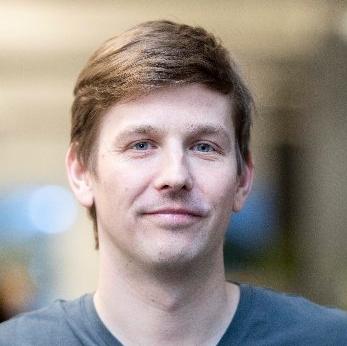Hi from Tallinn,
Football is mainly about sports, but it is also about politics. The same is true for other global sports such as tennis or basketball. In theory, it doesn’t have to be that way, but as soon as a fan shouts a racist taunt from the stands, the rest of the sports community has no choice other than making a choice.
Not saying or doing anything is also a choice, and a passive and political act. The same goes for saying something that doesn’t really mean anything such as “If I could stop the war, I would do it”. These are the words of Belarusian tennis player Aryna Sabalenka, who was scolded by her Ukrainian opponents in the French Open this year, for anonymising the aggressor in the war in Ukraine.
Readers of this week’s edition will probably realise the same as I did at our weekly editorial meeting – there is a way to take action without really wanting to take action. This approach results in ineffective half-measures against bigotry, continued racism in the stands and further intolerance.
I hope readers will have thoughts on what further choices are needed for their society.
Herman Kelomees, this week’s Editor-in-Chief
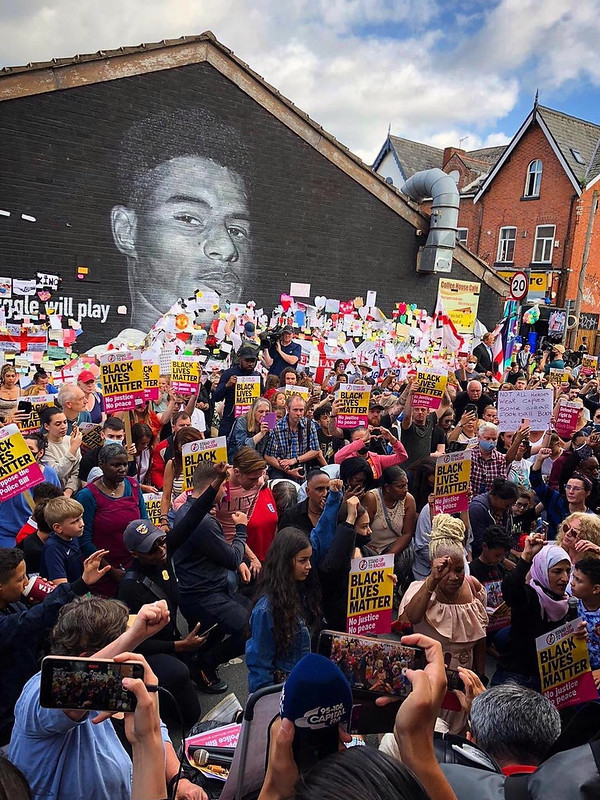
Racism in UK football may not seem as widespread as in Italy or Spain, but this does not mean that such bigotry against footballers belongs in the nation’s past.
The abuse aimed at English players Marcus Rashford, Jadon Sancho, and Bukayo Saka following their nation’s loss in the Euro 2020 final was the tip of the iceberg. Recently, during a match against Crystal Palace, Tottenham Hotspur forward and South Korea captain Son Heung-Min encountered a racist gesture from a Palace fan.
But a remarkable difference between England and Italy and Spain is that both clubs condemned the abuse, with Crystal Palace banning the fan from future games, while the police launched an investigation. The Football Association and football clubs in England, and the United Kingdom in general, are vocal and proactive in condemning and investigating racial abuse, unlike in many other European countries.
In a Coppa Italia semi-final between Inter Milan and Juventus last April, Milan striker Romelu Lukaku faced racist chants from Juventus fans, and made a silent ‘shhh’ gesture to the crowd, which saw the referee send him off, and league suspend the Belgian international (the decision was later reversed).
Spain tells a similar ugly story. Real Madrid winger Vinicius Jr faced abuse from La Liga competitor Valencia’s fans at a clash last month, and threatened to leave the pitch. A general issue in the two south European countries is the lack of an organised condemnation of racism, which still remains isolated and practised by a minority of fans.
This goes beyond authorities implementing laws against racial discrimination to social media and sports culture, education, media awareness and a shift of perception, with teams and organisations like Kick it Out and Show Racism the Red Card, which monitor and condemn abuse in the UK.
Racism has not gone from football in England, but the nation can demonstrate lessons that other European leagues could follow.

Last summer, 30,000 children attended the UEFA Nations League clash between Hungary and England at Puskás Arena in Budapest. Though meant to be a closed-door event as punishment to Hungary for racist chants from its supporters, UEFA allowed in children under 14 – many of whom booed the English team for taking the knee.
Hungarians view this anti-racism gesture as controversial. Hungarian PM Viktor Orbán even called pressuring athletes to take the knee a ‘provocation’.
But a few months later Orbán angered Romania and Ukraine by wearing a football scarf to a Hungary-Greece game, printed with a map of a ‘Greater Hungary’, including territory its Empire conceded after World War I. The PM defended his actions by saying football was not about politics.
Except of course when Hungary is provoked.
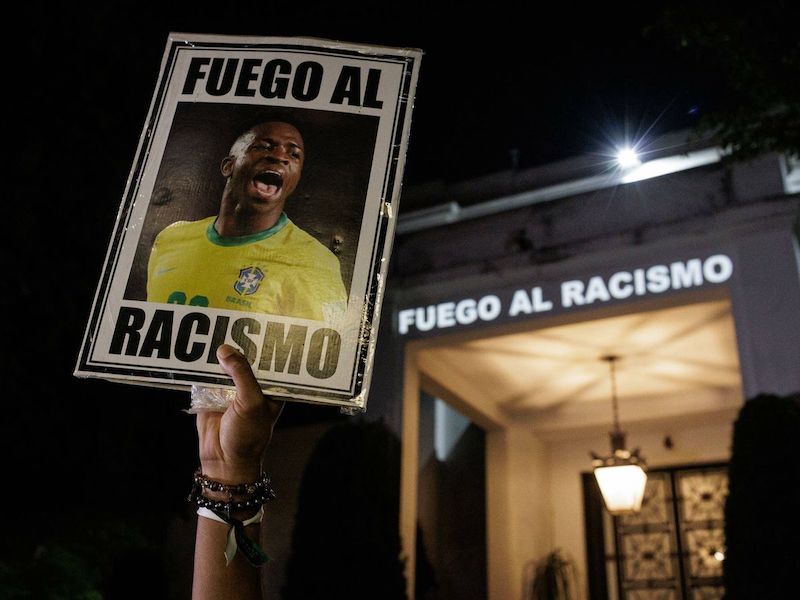
If you are not from Spain, you probably don’t know that one prevailing Spanish characteristic is that we hate ourselves. While the French have their ‘chauvinism’ and the UK is still nostalgic for the spoils of its Empire, the Spanish keep flogging themselves.
But there is a revisionist trend of trying to stir this spiritual self-sabotage. Into this scenario arrives the racist abuse against Real Madrid winger Vinicius Jr.
A quick recap: On 21 May, during a La Liga match against Valencia, Vinícius Jr. was subjected to racial slurs from Valencia supporters. This incident incited a broader conversation on racism within La Liga.
In Spain, there have been many — although sporadic — racist attacks against black football players. But the Vinicius Jr. case, given his and Real Madrid’s popularity, reached the foreign press. That is when the problems started.
Spain must reflect on its racist attitudes. That’s a fact. Maybe not necessarily against black people (2.4% of the Spanish population), but mainly against other minorities, such as Arab, Roma or indigenous Latin Americans. The Spanish do not consider themselves racist, but evidence proves otherwise.
But when we heard from the British press that the Spanish bid for the World Cup (with Portugal and Ukraine) may be in danger because of this incident, the reaction was uproar. We have been held us up against the mirror, and we didn’t like it. The British, the ones who exterminated the North American indigenous people, the ones that killed thousands in India… telling us that we’re racist?
We were focusing on ‘how’ Spain was being scolded, and not examining the ‘why’. I understand that we don’t want to be told from outside, but the question is still real: is there place for racism in Spanish society? We should listen to our Spanish black, Roma or Arab communities, and maybe we’ll be surprised.
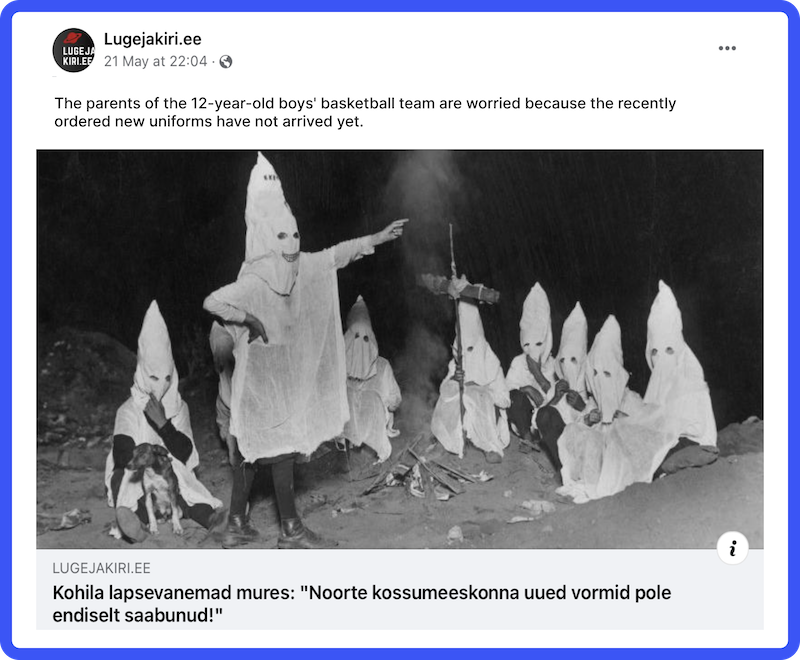
“The parents of the 12-year-old boys’ basketball team are worried because the recently ordered new uniforms have not arrived yet,” wrote an Estonian satire news site Lugejakiri. The article came with a photo of the supposed new uniforms — the notorious white robes of the Ku Klux Klan.
Of course the parents actually hadn’t ordered such clothing. The fictitious story was a reaction to an embarrassing event where a Finnish youth basketball team pulled out from a tournament because their Estonian opponents had used racial slurs against their black and Asian players.
The incident received wide media attention in both countries and sparked a much deeper debate. How to teach tolerance to such young kids? In a country where many of the older generation freely use the N-word and where, until a few years ago, the dictionary expressly said this word was not derogatory, it is not so easy to adopt a tolerant approach.
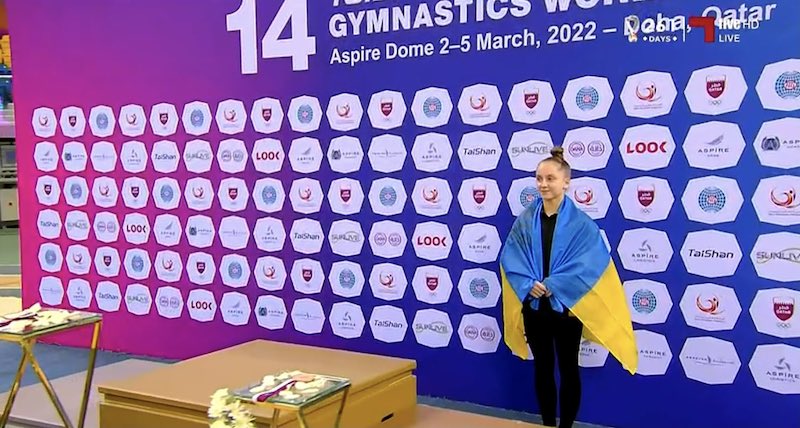
This Sunday, at the French tennis open Roland-Garros, a scandal occurred. The audience booed Ukrainian tennis player Marta Kostyuk after she refused to shake hands with her opponent, Aryna Sabalenka, of Belarus. The crowd on the tribunes perceived this as a sign of disrespect. This was not the case.
In modern times, sport has always been a symbol of common ground, fair play, rule-abiding and aspiration, despite state borders. International competitions underline the statement that all humanity is one large family. This was especially visible in the tournaments of post-USSR countries, where nations had a shared past, one language that everyone understands and common training methods, which created a warm and welcoming atmosphere.
But what happens when one of these countries tries to erase another?
Since the Russian aggression against Ukraine started in 2014, the approach that “sport is outside of politics” became quite popular among Ukrainians. For two reasons: first, there still was a feeling of kinship inside the sport community. Second, in prosperous Moscow, everything was “citius, altius, fortius” – faster, higher, stronger.
The prospect of higher incomes and better careers pushed many Ukrainian professionals to seek out Russia as a location for their training and development. Though any wins of Ukrainians over Russians were considered almost military victories: the nation was triumphant.
Since last year, when Russia’s intention to annihilate Ukraine became perfectly clear, the idea of the two countries working together in sport, art ― or, actually, any discipline ― became a no-go for most Ukrainians.
But many international sports federations haven’t excluded Russians or Belarusians, as Minsk is Russia’s official ally in this war. So Ukrainians still face them as opponents, and leaving world tournaments would effectively end their careers. But there are no hugs, no smiles, and no handshakes.
Kostyuk said that before the match she was following the news from Kyiv, where her father is living. The Ukrainian capital suffered its most critical drone attack. Aryna Sabalenka stated that, at first, she thought the boos from the Paris crowd were addressed to her. She understands everything.
Thanks for reading the 32nd edition of European Focus,
Let’s take the words of Aryna Sabalenka and try them in a different context. What if you were to say “If I could stop racism, I would do it”? My response would be: why do you assume you have no agency?
I hope more people can get over the discomfort of choosing to do something. Donate to campaigns, use your platforms, and raise a more open and accepting generation. I’m confident this will result in a more tolerant Europe.
See you next Wednesday!
Herman Kelomees





